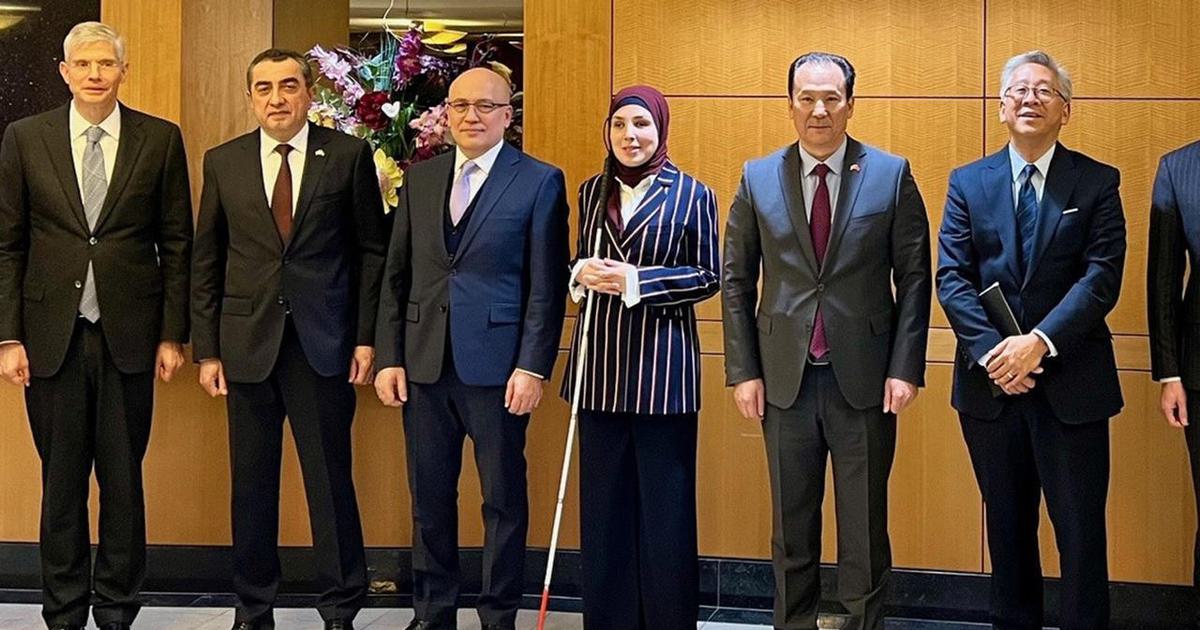SM: My team and I lead the U.S. government’s foreign policy on disability around the world. We lead disability policy everywhere, focusing not only on a human rights perspective, but also on a values-based perspective, which means helping the international community understand that we cannot achieve full peace, prosperity, and security without including the 17% of the world’s population with disabilities. [who identify as living with disability]We have to make sure they have a seat at the table, that their needs are met, but that they can bring forward values that benefit us, and [we need to] I want my colleagues at the State Department to see disability as part of their work, their priorities, and see the value of disability being part of their framework.
It’s been an amazing journey. I’ve been to 25 countries so far. I believe we are building capacity, promoting accountability and most importantly, flipping the narrative. Because even though there may be all kinds of policies around disability around the world, it is society that implements those policies. And unless we change the narrative around disability around the world, we will never achieve full disability inclusion.
SO: How have you used disability inclusion as a diplomatic tool?
SM: Disability is an uncontroversial issue. We all agree that disability inclusion is important. Sometimes the challenge is how, where, what resources and capacity to build, but this issue is an opener and most countries are ready to work with us. There is strength and power there. How can we leverage it to greater effect? This has to do with having a US-China coordination meeting. It has to do with being able to work with all the Central Asian countries on disability inclusion. So there are a lot of opportunities. [using disability as] It’s an amazing, wonderful tool in the world of diplomacy.
SO: You’ve listed “disrupting the narrative around disability” as one of your office’s areas of focus. How can Wellesley students help to dispel that narrative?
SM: I want people to really think honestly about: How do you perceive disability? How does society perceive disability? To be honest, the narrative is still a burden. Lesser, different, incompetent, suffering, struggling, charity, whatever, right? That’s still a very prominent narrative. So understand that, and understand that we want to get to a value-based narrative where everyone out there has value to contribute to the world. How do we understand the barriers to disability accessibility? How can we break down that? That’s one layer.
The second layer is that disability should be part of every major, every curriculum, no matter the field. How can we bring more disability language, stories, and context into the humanities, science, and economics? Disability should be mainstreamed in every field: disability and climate change, disability in an AI world, disability and peace and security.
SO: When you’re not busy at work, are there any books or podcasts you’re enjoying at the moment?
SM: I’m currently reading JK Rowling’s detective series, Cormoran Strike. I love listening to mystery thrillers and crime podcasts, especially when I’m traveling. A cross-country flight feels so long without something to read.
SO: If you could have dinner with anyone, living or dead, who would it be?
SM: There are two figures in me: the Prophet Muhammad and Mary, the mother of Jesus. This choice may seem contradictory, but it speaks to my personal connection to my faith, which forms an important part of my identity.
SO: What is one thing people would be surprised to know about you?
SM: One thing that surprises people the most is that I’m an introvert. This may seem strange since my job involves interacting with people all over the world, but I really value my personal time to relax and recharge so I can return to work the next day.

